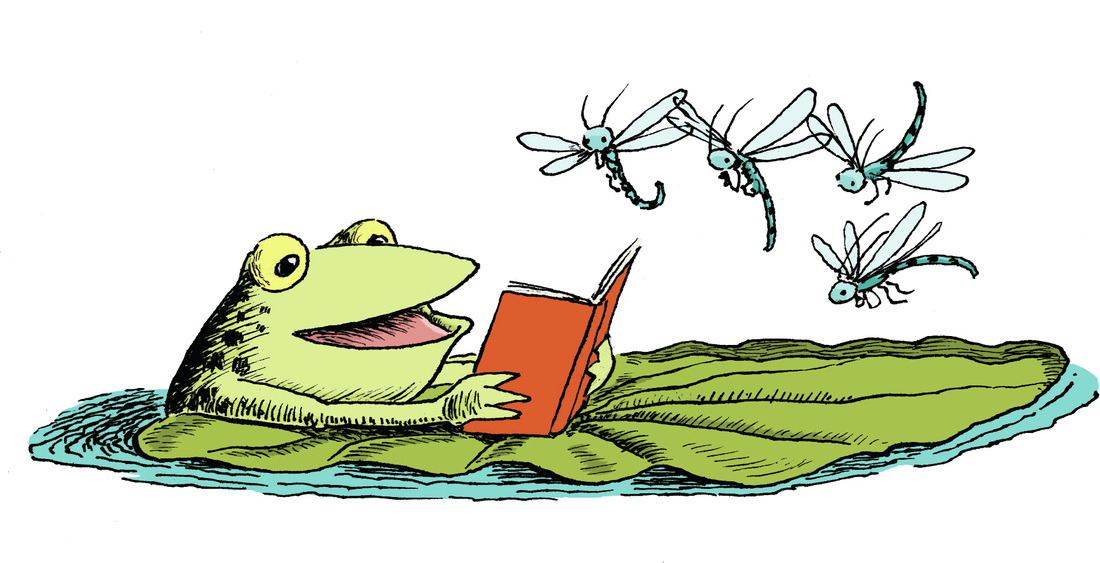Afer the story reels us in, our fates become intertwined with those of the characters that we now have an emotional connection with. If the story has a happy ending, it will trigger our limbic system. This is the body's reward center. Dopamine will get released and we feel will happy, too. Perhaps even optimistic. We begin to eperience the same feelings and emotions as the characters. This is the big reason why stories based on real life ressonate so deeply with us. I mean, who doesn't love a good Horatio Alger or underdog story. We love anything that gives us hope!
Stories bring us together. We crave them and they make transportation pleasurable.(See yesterday's blog for a short definititon of this phenomenon.) The short reason for this is that we need to know how to solve problems. Nature endows us with the instinct to survive and prosper. Stories give us an entertaining way to learn about problems and how to solve them. They teach us how to live. But science is showing that there may be another, equally important reason: stories increase our real-life empathetic skills. When we become empathetic with the story's character, we can transfer that empathy to the rest of our life; negotiating a deal, sizing up a potential enemy or threat, and discovering what our partner, or best friend, may want or need. As it turns out, even our modern day stories make us adaptive, in evolutioary terms. We can enjoy the story but also learn important survival skills in the process.
Research states that hearing a story has much more impact on us than that having the facts stated to us. As an example, on study shows that when struggling science students were told stories about the struggles of famous scientists, their grades improved. Stories trigger neurochemical processes within the brain that that make certain kinds of resource-sharing possible. This biological change can lead to important behavioral changes including costly acts of "altruism." It seems that the more cortisol and oxytocin a story causes us to release, the more charitable we become! This is the SAME neurochemical process that occurs when we hear a good fundraising pitch and inspires people to mobilize large-scale support for things like political campaigns, building a library, or improving a college. Stories enable us to form relationships with strangers and ask them to make donations, small sacrifices, for something greater than ourselves. Governments do this, in large part, when they ask us for tax money!
But, as you know, storys can also have a dark side. A sudden spike in cortisol can make us aggressive. It's the first half of the fight-or-flight response that we hear so much about. Simply put, stories form groups; a proccess enabled by oxytocin. It's no wonder, then, that stories like Harry Potter, Star Wars, and Lord of the Rings cause fans to form communities; good versus evil. But stories carry us towards ideals that can be destructive. Stories are a form of power over our bodies; and it's a power that we can use, or misuse.
A lot of psychotheapy these days involves getting clients to listen to the stories they tell themselves, then feeling the sensations and emotions that those stories evoke; is the story I'm telling myself allowing me to grow and flourish, or is it deprimental to my wellbeing? But just as importantly, we need to look at how our stories impact others. Are we using our power to help lift people up...or tro drag them down? Do we communicate things that make us feel good about who we are, or do they make us feel worse? Words are powerful. Stories bring us together, but they can also tear us apart. Gossip is a form of negative storytelling.
Stories can bring us joy and they can incite hatred. We are all born with the power to tell stories, even us frogs. Starting today, begin to notice the stories you tell; not only to yourself, but to others, as well. What messages are you sending? We hear enough negative stories on the daily news. Perhaps it's time that we, the citizens of the world, start telling ourselves more good and uplifting stories. Who knows? In time, and if enough of us join in, the nightly news won't have anything bad to report. And wouldn't that be a story with a happy ending!

 RSS Feed
RSS Feed